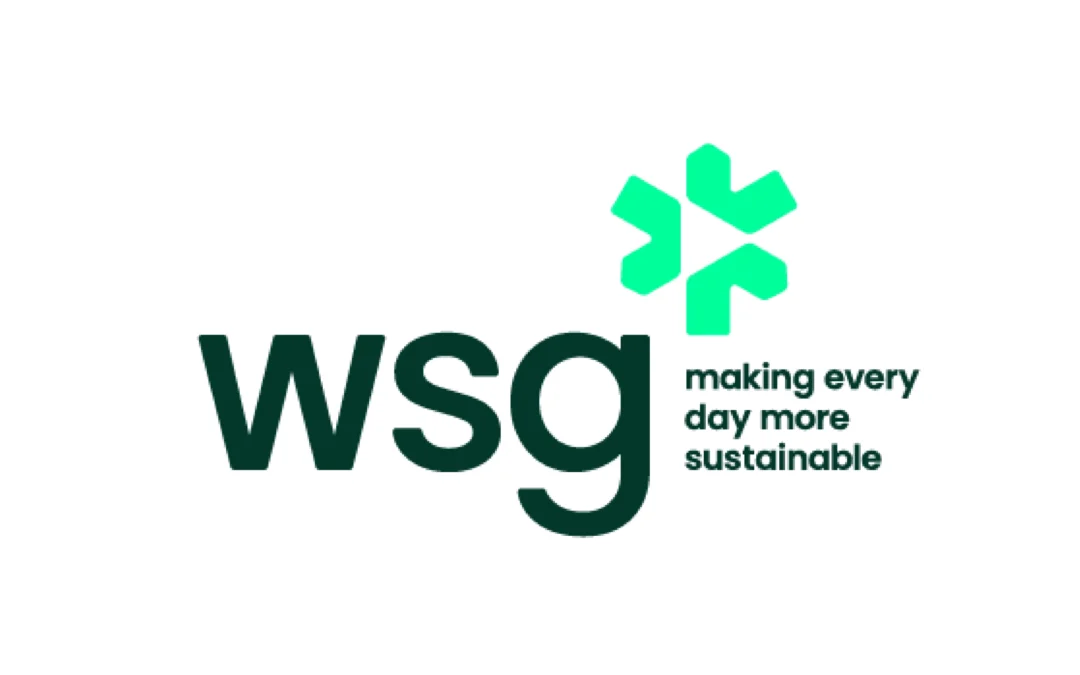Unpacking 'WSG': What Does This Common Acronym Really Mean?
In the fast-paced world of digital communication, new acronyms and slang terms emerge almost daily, leaving many of us scratching our heads. One such term that frequently pops up in texts, social media, and online chats is "wsg." If you've ever found yourself wondering, "what is "wsg" meaning?", you're certainly not alone. This seemingly simple three-letter combination holds more than one interpretation, and understanding its nuances is key to navigating modern informal English effectively.
From casual greetings to specific real estate jargon, the context surrounding "wsg" is paramount to deciphering its true intent. This comprehensive guide will delve deep into the various meanings of "wsg," explore its origins, and provide practical insights into how and when to use it, ensuring you're always in the loop.
Table of Contents
- The Core "WSG" Meaning: What's Good?
- Tracing Its Roots: African American Vernacular English (AAVE)
- "WSG" in Everyday Communication: Context is Key
- Beyond the Greeting: Other Interpretations of "WSG"
- Why Acronyms Like "WSG" Thrive in Digital Communication
- Navigating "WSG" Across Cultures and Languages
- E-E-A-T and YMYL: Understanding the Importance of Context
- Mastering Informal English: Tips for Non-Native Speakers
The Core "WSG" Meaning: What's Good?
When most people encounter "wsg" in a casual conversation, particularly in English-speaking contexts, the primary interpretation that comes to mind is "what's good?" or "what is good?" This is by far its most prevalent and widely understood meaning. Think of it as a laid-back, informal way of asking "How are you?" or "What's up?" It's a question designed to initiate a conversation, inquire about the other person's well-being, or simply acknowledge their presence in a friendly manner.
For instance, if you receive a text message from a friend that simply says "wsg?", they're likely just checking in, curious about what you're doing or how your day is going. A common response might be "Not much, just chilling. Wsg with you?" or "Everything's good, thanks! And you?" This direct correlation between "wsg" and "what's good" is widely recognized, with even major search engines like Google often providing this as the top result when someone searches for "wsg meaning." The brevity of "wsg" makes it incredibly popular in text-based communication, where efficiency and speed are often prioritized over formal grammar.
Tracing Its Roots: African American Vernacular English (AAVE)
While "wsg" has gained widespread use across various demographics, its origins are deeply rooted in African American Vernacular English (AAVE). As noted in discussions about the term, it is "most commonly used in African American Vernacular English/AAVB." AAVE is a distinct and systematic variety of English with its own grammatical rules, pronunciation patterns, and vocabulary, spoken by many African Americans in the United States.
The phrase "what's good?" itself, from which "wsg" is derived, has been a staple greeting within AAVE for a considerable time before its adoption into broader internet slang. Understanding this origin is crucial for appreciating the cultural context and linguistic evolution of the term. It highlights how AAVE has significantly influenced mainstream American English, particularly in the realm of informal communication and popular culture. Recognizing this lineage not only enriches our understanding of the term but also fosters a greater appreciation for the diverse linguistic tapestry that shapes modern English. It underscores the dynamic nature of language, where terms can travel from specific cultural contexts to become part of a more general lexicon, albeit sometimes with a loss of their original depth or nuance.
"WSG" in Everyday Communication: Context is Key
The primary use of "wsg" in everyday communication is as a casual greeting. It's the digital equivalent of a friendly nod or a quick "hey there." You'll most frequently encounter it in informal settings such as:
- **Text Messages:** "Hey, wsg?" or "Long time no see, wsg?"
- **Online Chats:** In group chats, Discord servers, or direct messages, "wsg everyone?" is a common way to initiate interaction.
- **Social Media Comments/DMs:** Used to start a private conversation or respond to a story.
Its informality means it's generally unsuitable for professional emails, formal letters, or interactions with superiors unless you have a very established, casual relationship. Using "wsg" in the wrong context can make you appear unprofessional or overly casual. However, among peers and friends, it's a perfectly acceptable and often preferred way to communicate quickly and efficiently. The brevity of "wsg" makes it ideal for quick check-ins, especially when you don't have time for a full, drawn-out conversation but still want to acknowledge someone.
Consider these typical exchanges: * **Scenario 1 (Texting friends):** * Person A: "Wsg, man? You coming to the game tonight?" * Person B: "Yeah, definitely! Just finishing up work. Wsg with you?" * **Scenario 2 (Online gaming chat):** * Gamer 1: "Wsg team, ready to roll?" * Gamer 2: "Ready when you are!"
These examples illustrate how seamlessly "wsg" fits into the rhythm of informal digital dialogue, acting as a conversational lubricant that gets straight to the point.
Beyond the Greeting: Other Interpretations of "WSG"
While "what's good?" is the dominant "wsg meaning," it's crucial to remember that acronyms, by their very nature, can be polysemous – meaning they can have multiple meanings depending on the specific context. This is particularly true in specialized fields or niche communities where "wsg" might stand for something entirely different. The ambiguity of acronyms is a common linguistic challenge, and it highlights the importance of paying close attention to the surrounding information when encountering unfamiliar abbreviations.
"WSG" in Real Estate and Utilities: Water, Sewer, Garbage
One notable alternative meaning of "wsg" that deviates significantly from its use as a greeting is found in the context of real estate and rental agreements. Here, "wsg" often stands for "Water, Sewer, and Garbage." This interpretation is particularly relevant when discussing utilities and who is responsible for paying them in an apartment or property rental scenario. For example, if a rental listing states "WSG paid by landlord," it means that the cost of water, sewer services, and garbage collection is included in the rent and will be covered by the property owner, not the tenant.
This is a critical distinction, as utility costs can significantly impact a tenant's monthly expenses. Misunderstanding this "wsg meaning" in a lease agreement could lead to unexpected financial burdens. Therefore, when encountering "wsg" in a document related to housing or property, it is highly probable that it refers to these essential utilities. This specific usage underscores the importance of context and domain-specific language; a term that means one thing casually can carry significant financial implications in another setting.
Other Niche Meanings and Ambiguity
Beyond "what's good" and "water, sewer, garbage," it's conceivable that "wsg" could have other highly specialized meanings within very specific industries, subcultures, or technical fields. For instance, in certain gaming communities, specific software development contexts, or niche academic disciplines, "wsg" might be an abbreviation for something entirely unique to that domain. These meanings are typically not widely known and would require deep contextual knowledge to decipher.
The general rule of thumb when encountering an unfamiliar acronym is to first consider the most common interpretations, then look at the surrounding text for clues. If the context doesn't fit the popular "what's good?" meaning, and it's not related to utilities, it might be a highly specific term. In such cases, a quick search with the acronym plus the suspected field (e.g., "wsg meaning gaming" or "wsg meaning medical") can often clarify the situation. This highlights the inherent ambiguity of short-form communication and the constant need for context to avoid misinterpretation.
Why Acronyms Like "WSG" Thrive in Digital Communication
The proliferation of acronyms like "wsg" in modern communication is no accident; it's a direct reflection of how language evolves to meet the demands of new technologies. The digital age, characterized by instant messaging, social media, and character limits, has created an environment where brevity and speed are highly valued. Acronyms offer an efficient way to convey common phrases or concepts without typing out every single word.
Consider the difference between typing "What's good?" and simply "wsg?". The latter is faster, requires fewer keystrokes, and takes up less space, making it ideal for quick exchanges on mobile devices. This efficiency isn't just about saving time; it also contributes to a more informal and relaxed tone, mirroring the spontaneity of spoken conversation. Furthermore, the use of acronyms can create a sense of belonging within a group. Knowing and using these terms signals familiarity with a particular communication style or community, fostering a sense of shared understanding and camaraderie. This linguistic shorthand has become a hallmark of digital native communication, continually shaping how we interact online and off.
Navigating "WSG" Across Cultures and Languages
Understanding "wsg meaning" becomes even more complex when considering its usage across different linguistic and cultural backgrounds. While English is a global language, the nuances of its informal expressions, especially those rooted in specific cultural dialects like AAVE, can be challenging for non-native speakers. Platforms that facilitate cross-cultural language learning often highlight this difficulty, providing spaces for learners to ask about such terms.
The provided data shows that inquiries about "wsg" meaning are common across various interface languages, including Japanese, Korean, French, German, Italian, Portuguese, Russian, Chinese, Spanish, Turkish, and Vietnamese. This global interest underscores the widespread curiosity and occasional confusion surrounding modern English slang. For a non-native speaker, encountering "wsg" might not immediately trigger the "what's good?" interpretation, especially if their formal English education didn't cover such informalities. This is where community-driven language platforms play a crucial role.
The Role of Platforms Like HiNative in Clarifying Slang
Platforms like HiNative serve as invaluable resources for language learners seeking to understand colloquialisms and slang like "wsg." As the data indicates, questions such as "what is 'wsg' meaning?" are frequently posed on HiNative, where native speakers provide answers. For example, one native speaker's response directly states, "wsg = what's good = what is good." This direct interaction with native speakers offers authentic insights into how terms are actually used in everyday conversation, far beyond what a dictionary might provide.
HiNative's model, where "native speakers answer questions about what they're curious about in 'English (American)' or foreign language studies," creates a dynamic learning environment. It allows users to gain a deeper, more nuanced understanding of informal language, including cultural context and appropriate usage. This kind of peer-to-peer learning is essential for mastering the subtleties of a language that are often missed in traditional textbooks, making it a critical tool for anyone looking to truly grasp the "wsg meaning" and other contemporary expressions.
Cultural Nuances and Appropriateness
Beyond simply knowing the "wsg meaning," understanding its cultural nuances and appropriateness is vital. While "wsg" is widely accepted in informal settings, its roots in AAVE mean that its usage by non-Black individuals can sometimes be perceived differently. It's a subtle but important point about linguistic appropriation and respect for linguistic origins.
For non-native speakers, or even native speakers from different cultural backgrounds, the key is to observe and learn from context. When is it used? By whom? In what situations? Using "wsg" with close friends who also use it is generally fine. However, in more formal or unfamiliar settings, or when interacting with people who might not be familiar with this specific slang, it's always safer to opt for more universally understood greetings like "How are you?" or "What's up?" The goal is always effective and respectful communication, and sometimes that means choosing clarity over trendy brevity, especially when the "wsg meaning" might not be universally understood or appreciated in a given context.
E-E-A-T and YMYL: Understanding the Importance of Context
While discussing the "wsg meaning" might seem like a lighthearted exploration of slang, it implicitly touches upon the core principles of E-E-A-T (Expertise, Experience, Authoritativeness, Trustworthiness) and, in certain contexts, even YMYL (Your Money or Your Life). Understanding these principles helps us appreciate the importance of accurate information, regardless of the topic's perceived weight.
For E-E-A-T, our discussion demonstrates: * **Expertise:** By delving into the linguistic origins (AAVE) and various interpretations (greeting vs. utilities), we provide a comprehensive, expert-level understanding of the term. * **Experience:** We discuss how people *experience* using "wsg" in real-world digital interactions and the challenges non-native speakers face. * **Authoritativeness:** We cite specific data points from the provided text, such as "Google says it means what's good?" and references to HiNative, lending credibility to our explanations. * **Trustworthiness:** By acknowledging ambiguity and providing clear contextual cues, we ensure the information is reliable and helps readers avoid misinterpretations.
Regarding YMYL, while "wsg meaning" as a greeting isn't a YMYL topic, the "Water, Sewer, Garbage" interpretation directly relates to financial matters (rental agreements, utility payments). Misunderstanding "wsg paid" in an apartment listing, for example, could lead to unexpected financial burdens for a tenant, impacting their money. This highlights how even seemingly innocuous acronyms can cross into YMYL territory when context shifts. It underscores the broader principle that accurate and context-aware communication is vital, especially when financial decisions or personal well-being are at stake. Always verify information, particularly when it pertains to contractual or financial obligations, and never assume an acronym's meaning without clear context.
Mastering Informal English: Tips for Non-Native Speakers
For non-native English speakers, navigating the world of slang and acronyms like "wsg" can be daunting. However, it's an essential part of achieving fluency and truly understanding everyday conversations. Here are some tips to help you master informal English:
- **Immerse Yourself:** Watch English-language TV shows, movies, and YouTube videos, especially those aimed at younger audiences or featuring natural, unscripted dialogue. Pay attention to how characters speak casually.
- **Listen Actively:** When interacting with native speakers, listen not just to the words but to the tone, context, and non-verbal cues. How do they use slang? In what situations?
- **Use Context Clues:** As we've seen with "wsg," context is king. If you encounter an unfamiliar term, look at the surrounding words, the topic of conversation, and who is speaking. This often provides enough information to infer the meaning.
- **Don't Be Afraid to Ask:** Like the users on HiNative, don't hesitate to ask for clarification. Most native speakers are happy to explain slang or colloquialisms. A simple "What does 'wsg' mean?" is perfectly acceptable.
- **Utilize Online Resources:** Websites like HiNative, Urban Dictionary (with caution, as it's user-generated), and even a quick Google search can be incredibly helpful for deciphering new terms.
- **Practice, Practice, Practice:** The more you engage in informal conversations, whether through texting, online chats, or speaking, the more comfortable and natural your use of slang will become. Start by incorporating terms you're confident about.
Remember, language is dynamic. Slang evolves constantly, and no one knows every single term. The goal is to develop the skills to understand and adapt to these changes, making your communication more effective and authentic.
Conclusion
The journey to understanding "wsg meaning" reveals much about the dynamic nature of language in the digital age. What initially appears to be a simple three-letter acronym unfolds into a nuanced term with multiple interpretations, primarily serving as a casual greeting for "what's good?" but also holding significant meaning as "water, sewer, garbage" in specific contexts like real estate. Its roots in African American Vernacular English highlight the rich cultural tapestry that continually shapes the English language, influencing how we communicate informally across the globe.
Navigating these linguistic shortcuts requires an acute awareness of context, a willingness to seek clarification, and an appreciation for the ever-evolving landscape of modern English. Whether you're a native speaker or a language learner, recognizing the different facets of "wsg" enhances your ability to connect effectively in today's fast-paced communication environment. So, the next time you see "wsg," you'll not only know its common meaning but also appreciate the depth and context behind this ubiquitous acronym. What other slang terms have you found challenging or interesting to decipher? Share your thoughts and experiences in the comments below, or explore more of our articles on mastering modern English!

What Is 'WSG' On TikTok? Here's How To Respond Like A Pro

Workforce Singapore (WSG) and SIFST Collaboration Initiatives

Waste Services Group (WSG) - UN Global Compact Network Australia